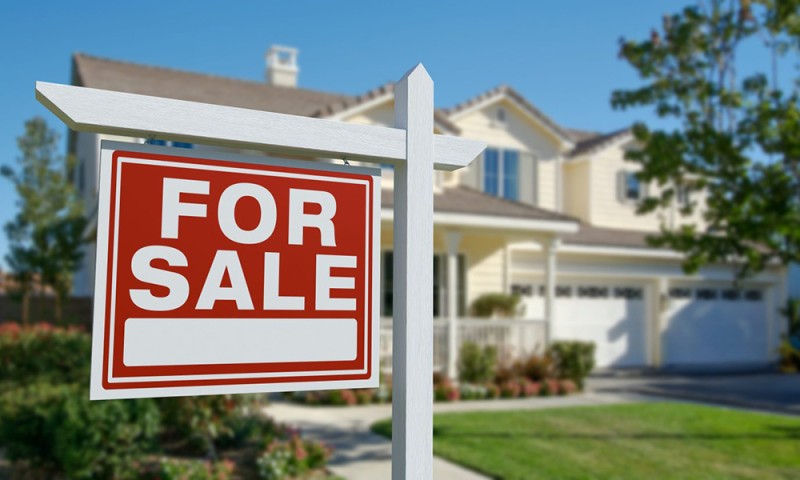
拥有房产被视为最明智的财务决策之一——前提是要负担得起。毕竟,房产是全球最大金融市场中的最大资产类别,而30年期抵押贷款这一美国独有的制度设计(理论上)让所有人都有机会实现“居者有其屋”的美国梦。
人们通过偿还抵押贷款逐步减少贷款本金、增加对房屋的实际所有权,直至达到理想状态——“完全拥有房产”,并在此过程中积累房屋净值与财富。通常情况下,房地产增值会进一步助推房主财富增长。事实上,过去几年里,疫情期间房价大幅上涨,持有房产尤其能带来丰厚回报。
但自2023年美联储大幅加息以来,全美房价整体陷入停滞甚至出现下跌。信息服务公司Cotality(前身为CoreLogic)的数据显示,过去一年,美国房主平均房屋净值缩水9200美元。
四季苏富比国际地产(Four Seasons Sotheby’s International Realty)房地产顾问利奥·庞德(Leo Pond)向《财富》杂志表示:“房屋净值增长已从2022年前后的爆发式增长期转入平稳期。”他解释称,这一转变由三方面因素共同推动:房价增值放缓、借贷成本上升及供需失衡。
“这并非崩盘,而是市场在消化过去几年不可持续的增长,”他说道,“这属于长期市场修正。”
不过,Cotality的数据显示,美国房主平均仍持有约30.7万美元的累计房屋净值。该公司首席经济学家塞尔玛·赫普(Selma Hepp)指出,这一数值处于历史第三高位。
塞尔玛在一份声明中提到:“即便在近期房价下跌导致平均净值缩水的地区,如哥伦比亚特区和佛罗里达州,借贷人平均仍持有近35万美元和29万美元的净值。”华盛顿特区和佛罗里达州房价跌幅最大,分别下跌3.4万美元和3.2万美元。
Coldwell Banker Warburg房地产经纪人朱尔斯·加西亚(Jules Garcia)向《财富》杂志表示:“我绝非不把9200美元当回事,毕竟多少钱都是钱,但相较于多数房主仍持有的六位数资产,9200美元的损失似乎算不上严重。对于那些在市场峰值时购入房产、所在区域市场跌幅更为显著且有紧急售房需求的房主而言,这无疑是个更令人忧心的状况。”
“一头浓密秀发上剪去一小缕”
从更为宏观的层面审视,Cotality数据显示,2025年第二季度,抵押贷款借款人总资产净值为17.5万亿美元,较去年同期下降0.8%(约1415亿美元)。与此同时,“负资产”(即房主抵押贷款金额超过房屋当前市值)房屋数量同比增加18%,达到115万套。
“尽管这一数字令人担忧,但目前尚未达到恐慌级别,”加西亚表示,“这是重大预警信号,但仍有许多地区房地产市场保持稳定。”
要客观看待这一情况,需记住疫情期间房屋净值大幅增长。
庞德指出:“许多家庭在疫情期间积累的净值远超此次损失金额,因此当前的修正属于温和修正,并非危机。对于大多数贷款价值比处于健康水平的房主而言,此次净值缩水就如同在‘一头浓密秀发上剪去一小缕’,影响微乎其微。”
不过持续关注房价走势仍至关重要——尤其是对有售房计划的房主而言。
赫普表示:“今年房价增速创下2008年金融危机以来的最低水平。由于部分市场增值趋缓甚至出现下跌,房屋净值积累预计也会相应放缓。随着增值速度下降,房价的季节性波动将对净值变化产生显著影响。”(*)
译者:中慧言-王芳
拥有房产被视为最明智的财务决策之一——前提是要负担得起。毕竟,房产是全球最大金融市场中的最大资产类别,而30年期抵押贷款这一美国独有的制度设计(理论上)让所有人都有机会实现“居者有其屋”的美国梦。
人们通过偿还抵押贷款逐步减少贷款本金、增加对房屋的实际所有权,直至达到理想状态——“完全拥有房产”,并在此过程中积累房屋净值与财富。通常情况下,房地产增值会进一步助推房主财富增长。事实上,过去几年里,疫情期间房价大幅上涨,持有房产尤其能带来丰厚回报。
但自2023年美联储大幅加息以来,全美房价整体陷入停滞甚至出现下跌。信息服务公司Cotality(前身为CoreLogic)的数据显示,过去一年,美国房主平均房屋净值缩水9200美元。
四季苏富比国际地产(Four Seasons Sotheby’s International Realty)房地产顾问利奥·庞德(Leo Pond)向《财富》杂志表示:“房屋净值增长已从2022年前后的爆发式增长期转入平稳期。”他解释称,这一转变由三方面因素共同推动:房价增值放缓、借贷成本上升及供需失衡。
“这并非崩盘,而是市场在消化过去几年不可持续的增长,”他说道,“这属于长期市场修正。”
不过,Cotality的数据显示,美国房主平均仍持有约30.7万美元的累计房屋净值。该公司首席经济学家塞尔玛·赫普(Selma Hepp)指出,这一数值处于历史第三高位。
塞尔玛在一份声明中提到:“即便在近期房价下跌导致平均净值缩水的地区,如哥伦比亚特区和佛罗里达州,借贷人平均仍持有近35万美元和29万美元的净值。”华盛顿特区和佛罗里达州房价跌幅最大,分别下跌3.4万美元和3.2万美元。
Coldwell Banker Warburg房地产经纪人朱尔斯·加西亚(Jules Garcia)向《财富》杂志表示:“我绝非不把9200美元当回事,毕竟多少钱都是钱,但相较于多数房主仍持有的六位数资产,9200美元的损失似乎算不上严重。对于那些在市场峰值时购入房产、所在区域市场跌幅更为显著且有紧急售房需求的房主而言,这无疑是个更令人忧心的状况。”
“一头浓密秀发上剪去一小缕”
从更为宏观的层面审视,Cotality数据显示,2025年第二季度,抵押贷款借款人总资产净值为17.5万亿美元,较去年同期下降0.8%(约1415亿美元)。与此同时,“负资产”(即房主抵押贷款金额超过房屋当前市值)房屋数量同比增加18%,达到115万套。
“尽管这一数字令人担忧,但目前尚未达到恐慌级别,”加西亚表示,“这是重大预警信号,但仍有许多地区房地产市场保持稳定。”
要客观看待这一情况,需记住疫情期间房屋净值大幅增长。
庞德指出:“许多家庭在疫情期间积累的净值远超此次损失金额,因此当前的修正属于温和修正,并非危机。对于大多数贷款价值比处于健康水平的房主而言,此次净值缩水就如同在‘一头浓密秀发上剪去一小缕’,影响微乎其微。”
不过持续关注房价走势仍至关重要——尤其是对有售房计划的房主而言。
赫普表示:“今年房价增速创下2008年金融危机以来的最低水平。由于部分市场增值趋缓甚至出现下跌,房屋净值积累预计也会相应放缓。随着增值速度下降,房价的季节性波动将对净值变化产生显著影响。”(*)
译者:中慧言-王芳
Owning a home is considered one of the best and most financially savvy a person can make—if you can afford it. After all, it’s the largest asset class in the largest financial market in the world, and the 30-year mortgage is a unique American invention that (theoretically) invites everyone into the American Dream of homeownership.
Buying a house allows people to build equity and wealth over time by making mortgage payments that reduce the loan principal and increase the owner’s stake in the home until, ideally, it’s owned outright. Typically, real estate appreciates, which adds to the homeowner’s wealth. In fact, owning a home during the past several years has been particularly lucrative as home prices spectactularly increased during the pandemic.
But since the Federal Reserve hiked interest rates aggressively in 2023, home-price appreciation has been either broadly flat or falling across the U.S., the average American homeowner lost approximately $9,200 in equity during the past year, according to data from information services company Cotality (formerly CoreLogic).
“Home equity growth has shifted from a period of explosive gains in the years surrounding 2022, into a plateau,” Leo Pond, a real-estate advisor with Four Seasons Sotheby’s International Realty, told Fortune. He explained the transition is driven by a combination of slowing price appreciation, elevated borrowing costs, and supply imbalances.
“This isn’t a collapse, but it is a market digesting several years of unsustainable growth,” he said. “It is a long-term market correction.”
Still, the average U.S. homeowner still has about $307,000 in accumulated home equity, according to Cotality. That’s the third-highest figure on record, according to Cotality Chief Economist Selma Hepp.
“Even in markets where recent price declines have pulled down average equity, such as the District of Columbia and Florida, borrowers on average hold almost $350,000 and $290,000 in equity, respectively,” Selma said in a statement. Home prices in Washington, D.C. and Florida dropped the most, down $34,000 and $32,000, respectively.
“Not to sound dismissive of $9,200, money is money [but] when compared to the six-figure equity many homeowners still hold, $9,200 doesn’t seem as dire,” Jules Garcia, a real-estate agent with Coldwell Banker Warburg, told Fortune. “It’s definitely more of a concern for homeowners who bought at market peaks, are experiencing more pronounced local market declines, and have higher sale urgency.”
‘Small haircut on top of a very full head of hair’
Zooming out, the total homeowner equity for borrowers with a mortgage totaled $17.5 trillion in Q2 2025, down 0.8% or $141.5 billion year over year, according to Cotality. Meanwhile, the number of homes with “negative equity,” meaning when a homeowner owes more on their mortgage than the current market value of their home, increased 18% year-over-year to 1.15 million homes.
“Despite that being a concerning number, it’s not a panic level just yet,” Garcia said. “It’s a big warning sign, but there are still many local markets showing stability.”
To put it in perspective, many homeowners added gobs of money to their home equity during the pandemic.
“Many households added far more than during the pandemic, so this adjustment is a moderate correction rather than a crisis,” Pond said. “For the majority of owners with healthy loan-to-value ratios, this is a small haircut on top of a very full head of hair.”
Still, it’s always important to continue to follow home appreciation—especially in the case the homeowner is looking to sell.
“Home prices this year have experienced the slowest rate of growth since the Great Financial Crisis of 2008. As appreciation remains modest and even declines in some markets, home equity accumulation is projected to follow suit,” Hepp said. “With the reduced pace of appreciation, seasonal fluctuations in home prices will have a pronounced impact on equity changes.”

